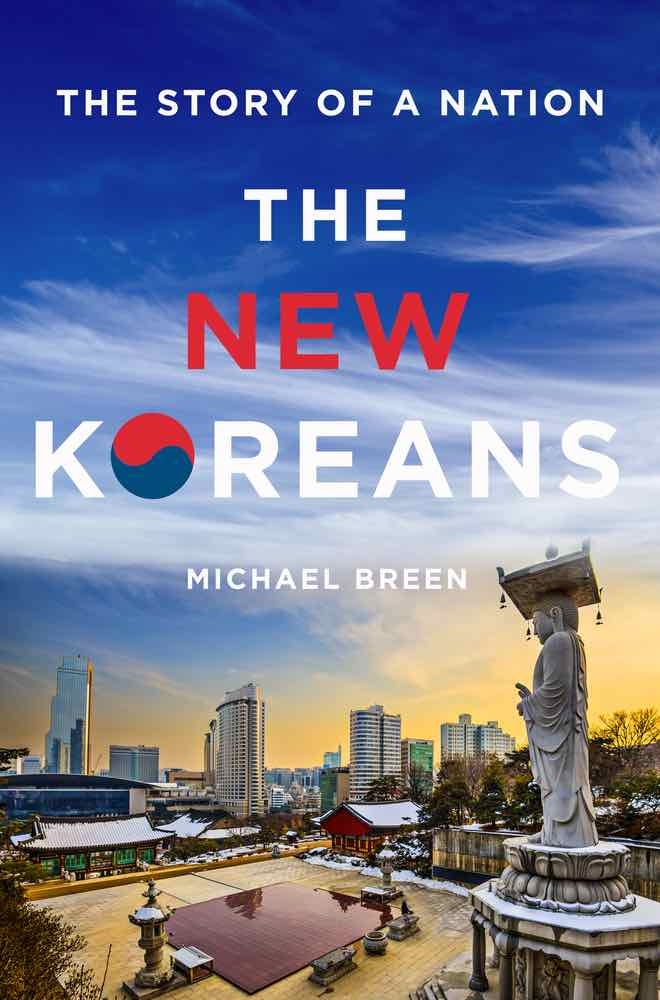The New Koreans

By Matthew Fennell, Contributing Writer
April 21, 2017 - Michael Breen is a journalist and consultant in Korea who first arrived in the country in 1982. His critically acclaimed 1998 book, The Koreans: Who They Are, What They Want, Where Their Future Lies, provided a fascinating, in-depth portrait of the country and its people. Almost 20 years later, and as Korea has continued to change dramatically, so too have Breen’s perceptions and observations on the nation. His latest publication, The New Koreans, focuses on these changes, and as a new member of Asia Society, the Korea Center caught up with Breen to discuss his new book.
Your first book was very well received by people with an interest in Korea. What made you want to write a sequel almost twenty years later?
The prosaic answer is that my agent told me to. “Korea is hot right now,” she said. Of course, “right now” in publishing, even in the 21st century, is three years before any book is going to come out. And the hotness in 2014 was North Korea, whereas my interest was in the South Koreans. I was also hesitant to do a new book because, when I wrote the first one, I had anticipated the sequel as “The Unified Koreans” and that was not happening. But my agent was insistent that it was a relatively untrodden field. Daniel Tudor and Andy Salmon had or were writing books on South Korea, but publishers felt there was room for more.
How much has Korea changed in the twenty years since the release of your first book?
Such is the pace of change that looking back just 20 years is like digging out old sepia photos. You can’t believe things were in color then. Of course, they were and not everything has changed. Spring still follows winter, people still speak Korean, park their cars on sidewalks and walk on roads. The phone numbers for the Foreign Correspondents Club and the Chosun Hotel are still the same. But so much else is different. For example, hair color. The old joke – Which one is Mr. Kim? He’s the guy with the black hair – doesn’t work anymore. Also, and those of us in Seoul and Busan don’t always get this, while in the city, a foreign face can still turn heads, in the countryside people are totally familiar. That’s because of international marriage and foreign workers in factories and in local businesses. Overall, the changes form the outward expression of advanced nationhood, increased wealth and sense of rights. With it has come a confidence in being Korean that wasn’t there before.
Have some of your own analyses and predictions also changed over the years?
Yes. I’m not sure how important this is because my predictions are always wrong. I forecast, for example, that re-unification would happen in 1992. This one has been revised. More than once, in fact. A fortune teller told me around the time the last book came out that Kim Jong-il would die in three years and that there’d be unification. I tell you, if you can’t trust a fortune-teller, who can you trust? As for analysis, I remain optimistic about the economy and improved democracy. One biggest change in my thinking is that I no longer see re-unification as the coming third miracle. This could be the result of fatigue. But I find myself thinking that the real third miracle, after economics and democracy, that completes the Korean arrival to global center stage is cultural – nothing specific, like the Gayageum or the group 2NE1, but rather the broader fact that the world now finds itself becoming as familiar with the Koreans as it is with the Australians, the French and other advanced societies. When you cast back just a few years and remember what Korea was like, you can see why this has the feel of a miracle. In this context, I see re-unification as a matter for the Koreans. Of course, it’ll get written about and excite people and change things. But it’s not an example of anything to the world, except perhaps Korean fractiousness. If anything, the world will go, “So, you developed quicker than anyone in history, became a democracy and all that. How come you couldn’t reconcile with your own people?”
The timing of the book’s release meant that you did not get a chance to talk about the recent political scandal to hit Korea. Do you have plans for an updated edition?
Not yet, but I’m sure that it’ll soon be in every home and every hotel room – not to mention the movie – so I’ll have to keep updating. For this first edition, I wanted to slip in the impeachment on December 9 last year but was told it would delay publication until September 2017. I’ll get it in the next printing. By then, of course, something else will have happened.
Tensions are currently high on the peninsula. How do you see relations with North Korea playing out in the future?
For 25 years now, since the collapse of the Soviet Union, there has been a cycle with North Korea of yelling and threats, followed by talks, then a walk-out by the North Koreans, concessions to bring them back, a more complete walk-out, then yelling and threats again. If this holds, we’re due for talks. One day, the pattern will break and there will be a power shift that prompts the North to focus on its economy over security. It could be tomorrow, it could be 30 years from now. Whenever it comes, it will be the starting point for reconciliation and, possible a long time later, merger. Let’s hope the trigger is not violent and chaotic. But, I hasten to remind you, my predictions are always wrong, and I just know I’ve missed something out that will be the key to whatever it is that actually happens.
